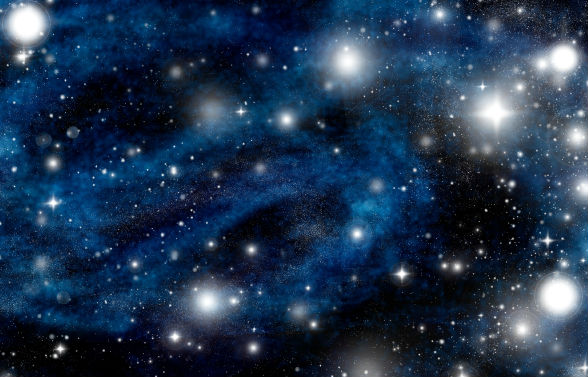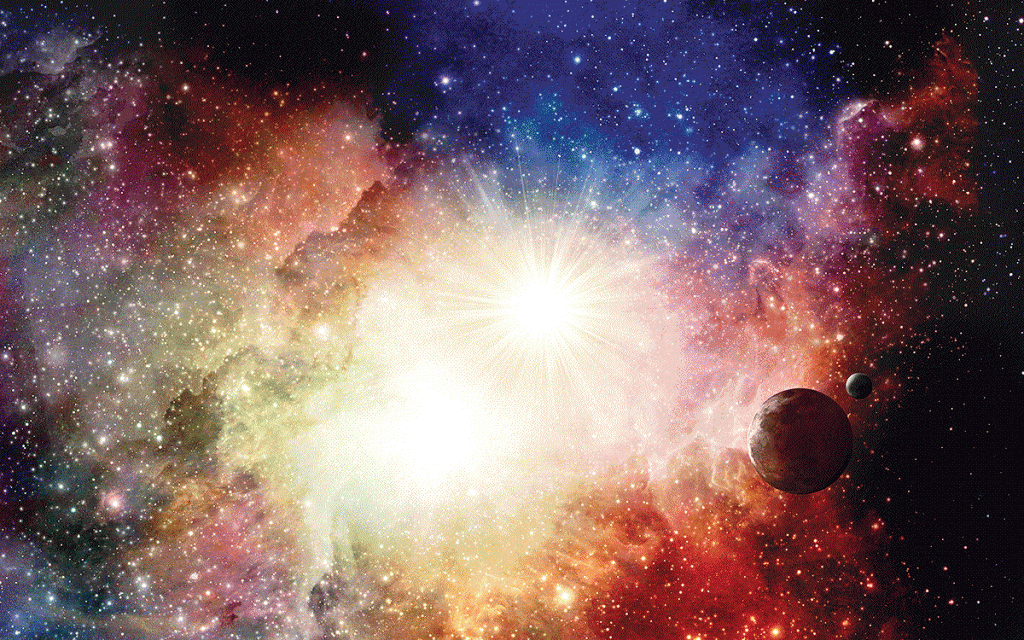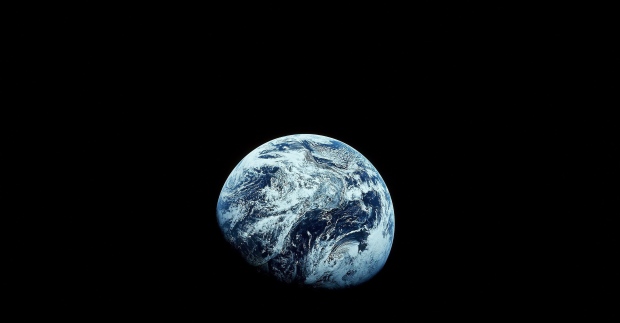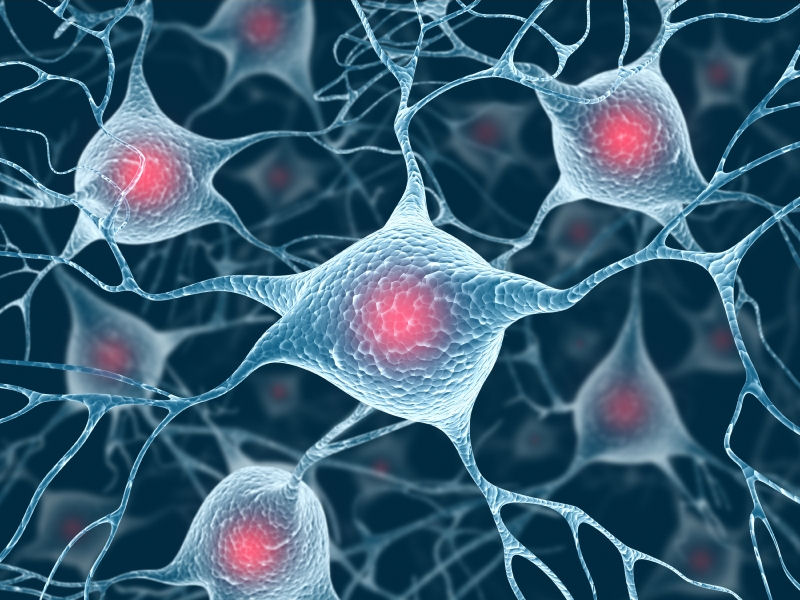Science Shows Evidence of God
It’s true that science cannot prove or disprove the existence of God using empirical data because, for one thing, this methodology excludes anything that cannot be tested with the five senses. For another, there are simply too many factors in the cosmos that are unknowable. These conditions put a healthy damper on actual proof.
But what we can acquire in our search for God is a preponderance of evidence—evidence that can create fertile ground for a seed of faith to be planted and nourished (see Alma 32). Examples of God’s divine signature are literally all around us.
The Cosmos Yields Answers
Because the universe is expanding and inflating, we know there had to be an actual beginning—a launch point from which the inflation process could begin. This infinite stretching of the universe was even mentioned by the prophet Isaiah: “Thus saith God the Lord, he that created the heavens, and stretched them out…” (Isaiah 42:5). This is important because a true beginning suggests a creator, much like the creation of a painting suggests an artist.

Inflation also appears to be a potentially unending, self-reproducing process with bits of the expanding universe breaking off and inflating into other independent existences. This is why scientists in the field of Quantum Mechanics now conclude we actually live in a multiverse instead of a single universe.They say ours is neither the only space-time universe, nor the first one to be created. Other universes existed prior to our own.
This is exciting because the process of one universe originating as the offspring of another earlier universe coincides perfectly with LDS theology about eternal progression and all the dominions exalted beings will inherit. In Mormon theology, exalted beings exist simultaneously which necessitates separate universes that coexist. The multiverse will continue forever because of the constant adding of new universes within it.
The idea of a multiverse cosmology is exquisitely portrayed in the Lord’s avowal to Moses: “And as one earth shall pass away, and the heavens thereof even so shall another come; and there is no end to my works, neither to my words” (Moses 1:38).

The sheer vastness of the universe and beyond is a testament, itself, to God’s existence. While Joseph Smith taught that God created worlds without number (Moses 1:33), astronomers have attempted to affix an actual amount. They say there are 400 billion stars in the universe and out of that, about 10 billion planets that have the potential to support life of some kind. This suggests that something so vast could not exist merely by chance or from nothing.
Requirements for Earth Life
For the earth to exist, there are 200 known parameters that must fit perfectly in combinations that are not too much, and not too little, but just right. They call this the Goldilocks effect. If any one of these parameters were not just right, Earth would be unable to form at all or to produce life.
Let’s look at a handful of these parameters.
- Earth is the perfect distance from the sun to support life. Gravity holds a thin layer of mostly nitrogen and oxygen just 50 miles above the surface.If the distance was smaller or larger, this would not be possible.
- The moon is the perfect size and distance from the earth to create the gravitational pull so important for ocean tides and movement that keeps water from stagnating or leaving the boundaries of the shorelines.
- A massive planet like Jupiter must be close enough to the earth to possess gravity strong enough to draw away asteroids. Without it a thousand times more asteroids would pummel the earth’s surface.
- The universe operates under uniform laws of nature such as gravity, the seasons, light and dark, chemistry, mathematics, and physics. They do not change and are elaborately fine- tuned to make life possible.
- The miraculous properties and processes of water to sustain life are incredible. It can’t be underscored enough the miracle that water is to the total well being of this planet.
- Then there’s the elaborate process of photosynthesis, where plants, algae, and certain bacteria convert sunlight to chemical energy. It is one of nature’s most elaborate biological machines.
- Our complex ecosystem of plant and animal life and their interdependency to thrive and survive is an amazing feat.

Human Body: No Product of Chance
And what about the complexities of the human body as evidence of God? “Think of the body’s defense system,” said Elder Russell M. Nelson. “To protect it from harm, it perceives pain. In response to infection, it generates antibodies… The body renews its own outdated cells and regulates the levels of its own vital ingredients. The body heals its cuts, bruises, and broken bones.”
Look at the miraculous properties of the human cell where enormous amounts of information are encoded. Information requires intelligence. Divinely guided natural selection is the only reliable explanation for the cell’s ability to invent the chemical code for millions of sequences in every cell. The odds of a single protein molecule forming by chance are 1 in 10 to the 243 power (that’s a 10 followed by 243 zeros).
The brain contains around 200 billion neurons which are each connected to upwards of 200,000 other neurons, so the number of ways that information flows among neurons in the brain is greater than the number of stars in the entire universe. (And we haven’t even mentioned synapses, dendrites and axons, oh my!) How could this super computer that is our brain just happen?

God is the Answer
The mind-boggling list of requirements for the existence of the universe and life within it spell out clearly how astronomical the odds against it actually are. Wouldn’t it take far less faith to believe a Deity created such seamless conditions than to believe the earth beat the staggering odds of coming into existence all on its own?
This is a question with an obvious answer and yet the God-science conundrum continues. The good news is, the more science learns about our world, the more it persuades us to see God as the answer.
Famous astrophysicist Robert Jastrow, the founding director of NASA’s Goddard Institute for Space Studies, wrote about the tug-of-war between science and theology. He said, “Consider the enormity of the problem. Science has proven that the universe exploded into being at a certain moment. It asks, ‘what cause produced this effect?’ ‘Who or what put the matter and energy into the universe?’ ‘Was the universe created out of nothing, or was it gathered together out of pre-existing materials?’
“And science cannot answer these questions …. For the scientist who has lived by his faith in the power of reason, the story ends like a bad dream. He has scaled the mountain of ignorance; he is about to conquer the highest peak; as he pulls himself over the final rock, he is greeted by a band of theologians who have been sitting there for centuries.”
References and Further Reading:
- Martin Rees, Before the Beginning: Our Universe and Others (Reading, Mass.: Addison-Wesley, 1997), 3.
- Ross Anderson, “ATLAST: The Gargantuan Telescope Designed to Find Life on Other Planets,” The Atlantic, October 11, 2012.
- M. J. Russell, and N. T. Arndt, “Geodynamic and Metabolic Cycles in the Hadean,” Biogeosciences, 2, 2005, 97-111.
- David Miller, PhD., “The Brain Proof of God,” Apologetics Press Inc., 2012.
- Robert Jastrow, “The Religion of Science,” in God and the Astronomers, (New York: Readers Library paperback, 2000) 105.


